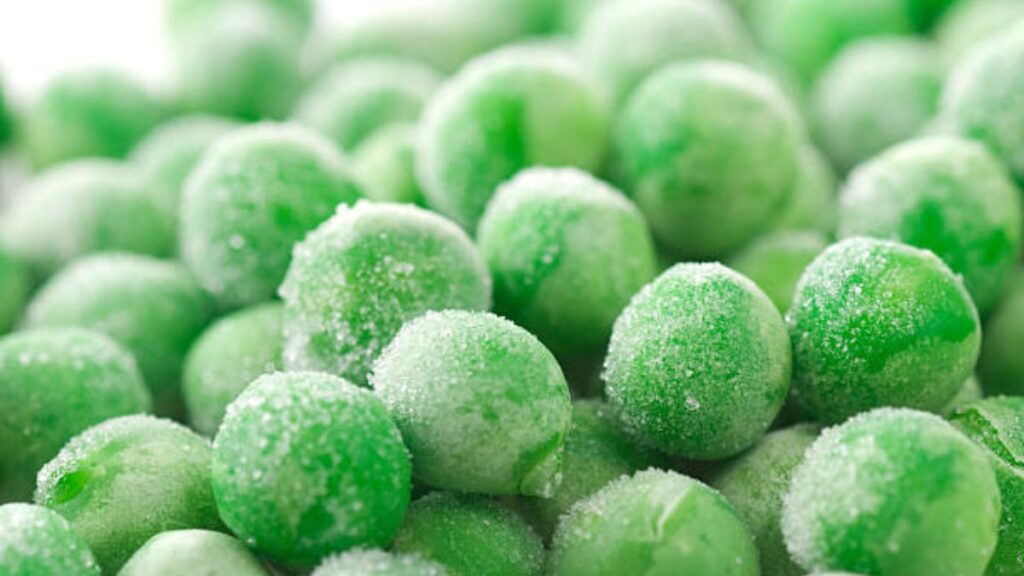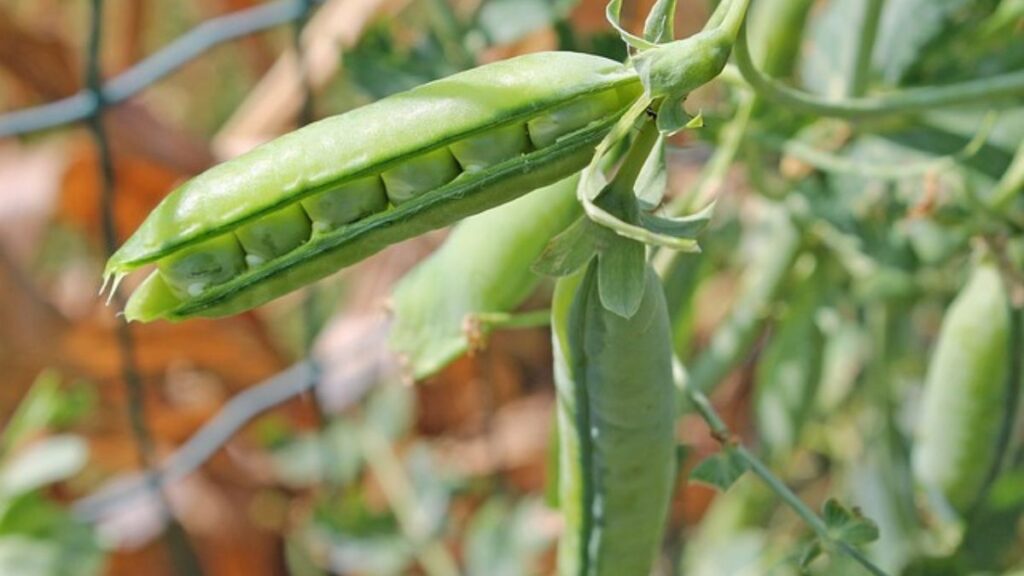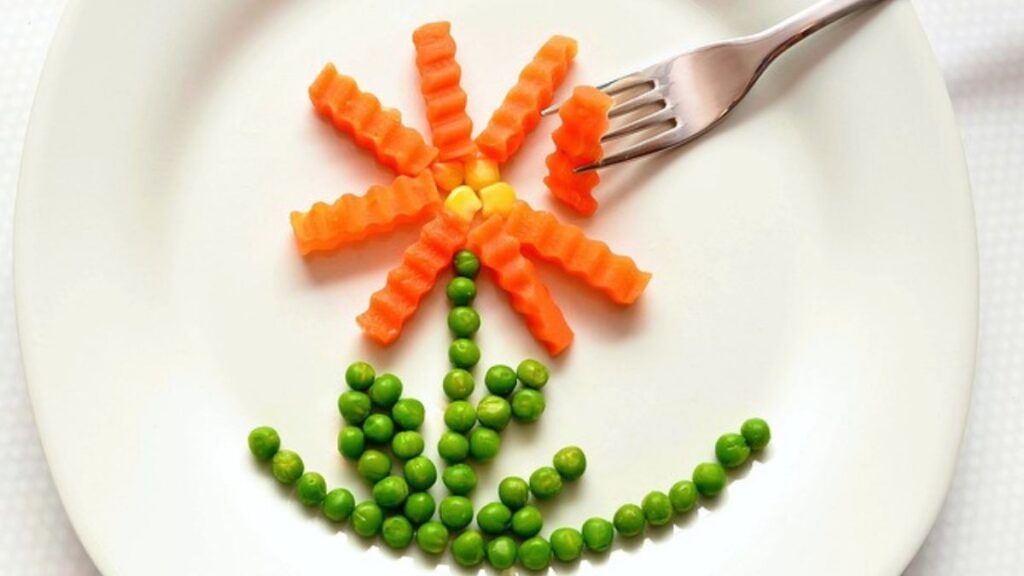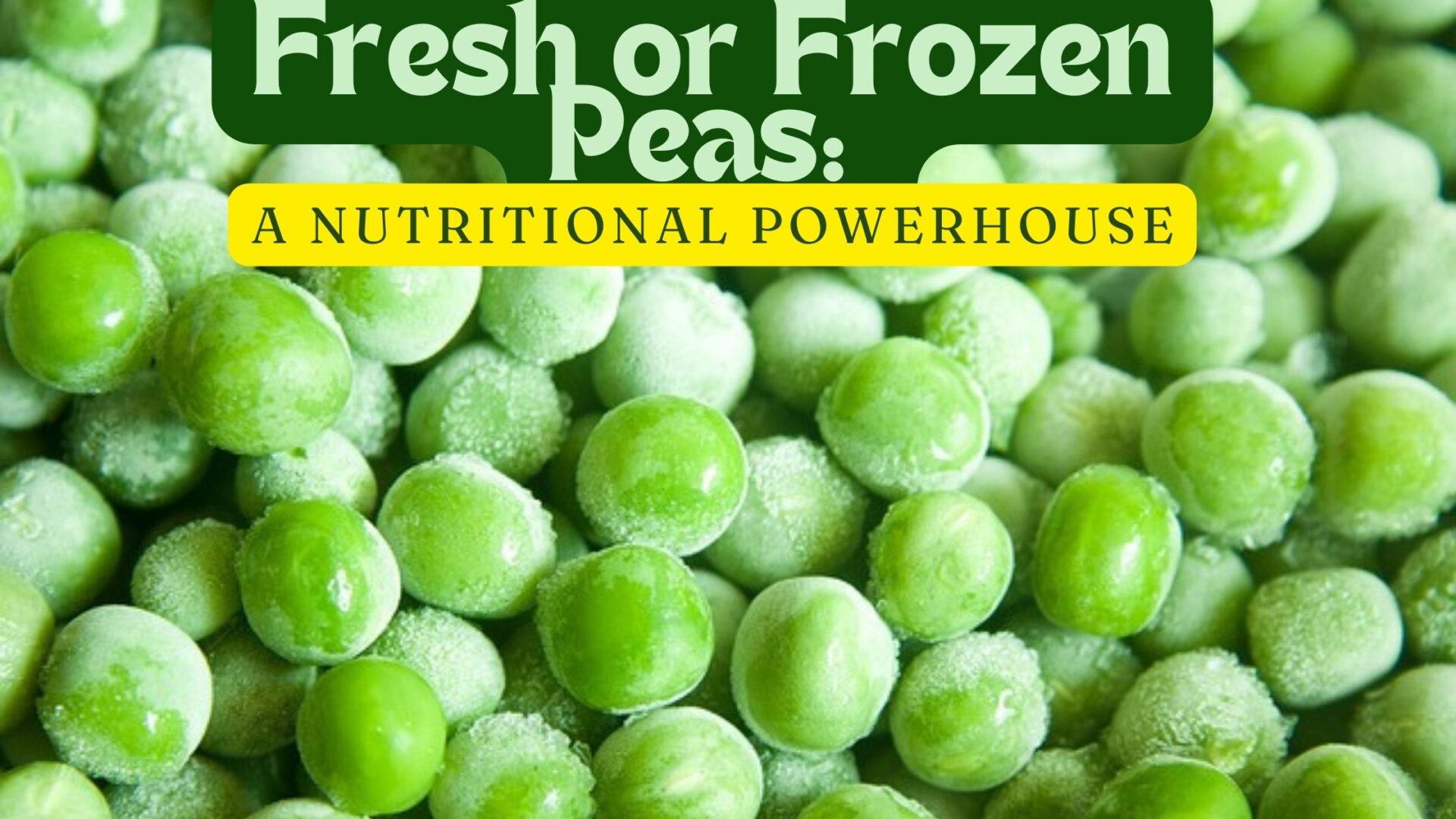Introduction:-
Fresh or Frozen Peas: A Nutritional Powerhouse

Peas, fresh or frozen, are nutritious and versatile. Packed with essential nutrients, they’re a kitchen staple worldwide. This article explores their health benefits, compares fresh and frozen peas, and offers tips for incorporating them into your diet.
The Nutritional Benefits of Peas
Peas stand out as a remarkable plant-based source of protein and dietary fiber, both of which are vital for maintaining optimal health. A single cup of peas boasts approximately 8 grams of protein and 9 grams of dietary fiber, making them an ideal choice for vegetarians, vegans, and individuals seeking to elevate their protein intake.
Key Nutrients Found in Peas
- Protein: Essential for muscle repair and growth, protein also plays a crucial role in keeping individuals feeling satisfied and full.
- Fiber: This nutrient aids in digestion, helps in regulating blood sugar levels, and offers support for heart health.
Vitamins and Minerals: Peas are a treasure trove of vitamins, including vitamins A, C, K, and several B vitamins. They also offer essential minerals such as iron, magnesium, and potassium.
Fresh vs. Frozen Peas: Which is Better?
While both fresh and frozen peas offer comparable nutritional value, there are some distinctions worth considering.
Fresh Peas:
- Harvested during spring and early summer
- Vibrant green color, plump shape, and tender texture
- Can be consumed raw, steamed, or incorporated into various dishes
- Shorter shelf life, requiring prompt consumption after purchase
Frozen Peas:
- Harvested at peak ripeness and promptly frozen to maintain nutritional content
- Quick freezing preserves vitamins and minerals, making them as nutritious as fresh peas
- Longer shelf life, allowing storage in the freezer for several months
- Versatile ingredient suitable for a range of recipes
Nutritional Comparison:
- Studies indicate minimal nutritional differences between fresh and frozen peas
- Freezing peas soon after harvesting helps retain nutrients, potentially surpassing the nutritional content of fresh peas stored for several days
How to Incorporate Peas into Your Diet
Peas are incredibly versatile and can be added to many dishes to boost their nutritional content. Here are some simple ways to incorporate peas into your meals:

- Salads: Add fresh or thawed frozen peas to salads for a burst of color and nutrition.
- Soups and Stews: Peas can enhance the flavor and nutrient profile of soups and stews.
- Stir-Fries: Include peas in your favorite stir-fry recipes for added protein and fiber.
- Side Dishes: Serve peas as a side dish, seasoned with herbs and spices for a delicious and nutritious accompaniment.
- Pasta and Rice Dishes: Mix peas into pasta or rice dishes to increase their nutritional value.
How do you cook frozen peas to retain nutrients?
Cooking frozen peas to retain their nutrients involves minimal cooking time and the right method. Here are a few methods to consider:

1. Steaming
Steaming is one of the best methods to preserve the nutrients in peas.
Steps:
- Place a steamer basket in a pot with a small amount of water.
- Bring the water to a boil.
- Add the frozen peas to the steamer basket.
- Cover and steam for 3-5 minutes until the peas are tender.
2. Microwave
Microwaving is a quick and effective way to cook frozen peas without losing much of their nutritional value.
Steps:
- Place the frozen peas in a microwave-safe dish.
- Add a small amount of water (about 2 tablespoons).
- Cover the dish with a microwave-safe lid or plastic wrap.
- Microwave on high for 3-4 minutes, stirring halfway through.
3. Boiling
Boiling can be done if you keep the cooking time short.
Steps:
- Bring a small amount of water to a boil in a pot.
- Add the frozen peas.
- Boil for 2-3 minutes until the peas are tender.
- Drain the peas immediately to prevent overcooking.
Do frozen peas lose their nutritional value?
Frozen peas provide excellent nutritional value and can be a convenient and healthy addition to your diet. Here’s an overview of their nutritional benefits:
- Vitamin Retention: Freezing helps preserve vitamins, especially vitamin C and folate. These nutrients tend to degrade over time in fresh peas due to storage and transportation.
- Mineral Stability: Minerals like iron, calcium, and magnesium remain stable during freezing, ensuring you receive essential minerals from your peas.
- Unaltered Protein and Fiber: The protein and fiber content of peas remain largely unaffected by freezing, providing a balanced nutrient profile.
- Preserved Antioxidants: Freezing can help retain antioxidants, which contribute to the overall health benefits of peas and may support your well-being.
Overall, frozen peas retain most of their nutritional value and offer a convenient and nutritious option for your meals.
How much protein is there in a cup of peas? What are the health benefits of eating peas?
Rephrased, Reworded, and Reorganized Output Text:

Peas, a nutritious legume, offer numerous health benefits. One cup (approximately 160 grams) contains about 8 grams of protein.
Nutrient-Rich Powerhouse:
- Peas are an excellent source of essential vitamins (vitamin C, vitamin K, and several B vitamins), minerals (iron, manganese, and phosphorus), and antioxidants.
Heart Health Protector:
- The fiber, potassium, and magnesium in peas support cardiovascular health by helping to lower blood pressure and improve cholesterol levels.
Fiber Fantastic:
- Peas provide dietary fiber, which aids in digestion, maintains gut health, and can reduce cholesterol levels.
Weight Management Ally:
- The fiber and protein content in peas promote satiety, helping to control appetite and maintain a healthy weight.
Blood Sugar Regulator:
- The protein and fiber in peas help regulate blood sugar levels by slowing down the absorption of sugar.
Anti-Inflammatory Warrior:
- Peas contain antioxidants and anti-inflammatory compounds that can help reduce inflammation and lower the risk of chronic diseases.
Eye Health Guardian:
- The carotenoids lutein and zeaxanthin found in peas support eye health and may reduce the risk of cataracts and age-related macular degeneration.
Bone Health Booster:
- Peas are a good source of vitamin K, which is crucial for bone health and aids in calcium absorption.
Enjoy Peas for a Healthier Life:
Incorporating peas into your diet can provide a wide range of essential nutrients, support various aspects of your health, and enhance your overall well-being.
Conclusion
Incorporating peas into your diet, whether fresh or frozen, can provide a significant nutritional boost. Their abundance of protein, fiber, vitamins, and minerals makes them an excellent addition to various meals. Peas offer both convenience and versatility, making them an effortless and effective way to enrich your nutritional intake. By including peas in your culinary creations, you can enhance your overall well-being and enjoy a healthier lifestyle.
